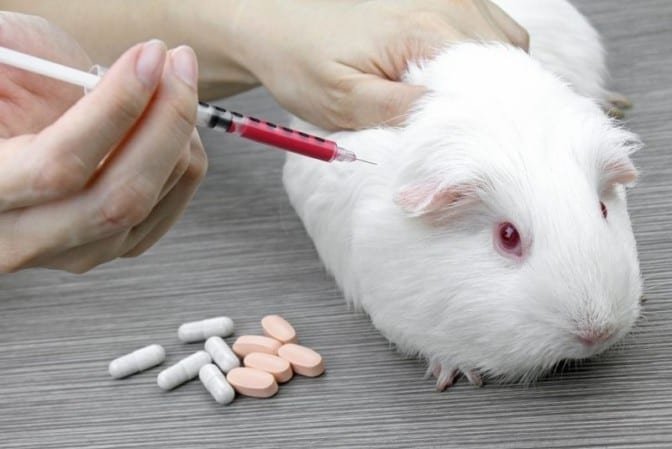
Regulation Updates in China
By Yiguang Zhu and Zachary Leibowitz | August 22nd, 2024
“A wave of regulatory updates in China is reshaping the landscape of the field of animal testing, challenging long-standing practices and opening doors to innovative non-animal alternatives.”

Innovative Solutions for an Invisible Threat: Enhancing PFAS Assessment
By Loza Taye | May 2nd, 2024
“The PFAS public health threat demands rapid and sustained action and innovative solutions. Increasing evidence indicates that NAMs should be prioritized as a path to tackle the sizeable chemical class with speed and efficacy.”

A Day at the Capitol: Cruelty Free Science Day
By Andrew Obeng | March 21st, 2024
“On March 7th, our Toxicology Policy team leader, Dr. Paul Locke, Hopkins doctoral student Breanne Kincaid, and post-doctoral student Itzy Erin Morales Pantoja, presented their research at a Capitol Hill briefing hosted by Cruelty Free International.”

Three State Bills/Laws That Don’t Go Far Enough To Reduce And Replace Animals Used In Testing (Part 2)
By Sherman McFarland | February 7th, 2024
The medical research exemptions in California’s law, Illinois’ law, and Massachusetts’ bill are so broad that these pieces of legislation have been rendered almost completely ineffective.

Could Octopuses Become the Next “Lab Rat”?
By Daria Bednarczyk | January 11th, 2024
As the common English saying goes, “just because you can doesn’t mean you should.” This declaration significantly ties into the topic of using animals for laboratory experimentation…

Reimagining Legacy Animal Data Through the Lens of AI
By Yiguang Zhu | December 14, 2023
This August, members of our team attended the 12th World Congress on Alternatives and Animal Use in the Life Sciences (WC-12), a significant event dedicated to advancing the 3Rs principles (replacement, reduction, and refinement) in scientific research, industry, and regulatory practices…

Three State Bills/Laws That Don’t Go Far Enough To Reduce And Replace Animals Used In Testing (Part 1)
By Sherman McFarland | October 26, 2023
Federal agencies and elected officials should not view the shortage of non-human primates (NHP) available for research as a problem that needs to be fixed by acquiring more NHPs. The real problem is what the NHP shortage allegedly does: impedes research…

Law and Policies Effect on EPA Work Plans and Non-Animal Vertebrate Timeline
By Andrea Uhlig | October 12, 2023
Government agencies, such as the Environmental Protection Agency (EPA), make regulatory decisions based on laws set by Congress, and policies put in place by past or current administrations…

ARPA-H: A Catalyst for Advancing Microphysiological Systems
By Yiguang Zhu | September 28, 2023
The Advanced Research Projects Agency for Health (ARPA-H), a new federal agency within the NIH, has emerged as a significant force in biomedical and health research…

The Shortage of Non-Human Primates Available for Research Opens a Door for Non-Animal Test Methods
By Sherman McFarland | September 14, 2023
Federal agencies and elected officials should not view the shortage of non-human primates (NHP) available for research as a problem that needs to be fixed by acquiring more NHPs. The real problem is what the NHP shortage allegedly does: impedes research…